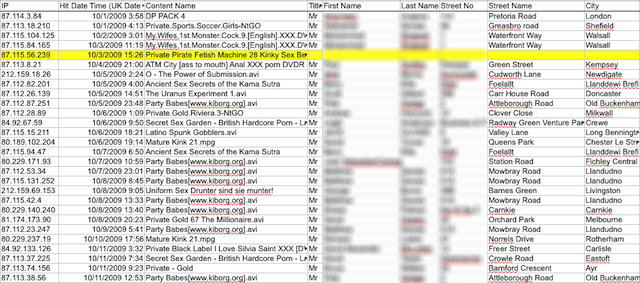If you remember my article “Right to Privacy in Malaysia: Do we have it?” which was published in LoyarBurok, I just found out that it was picked up by well known online news portal Malaysian Insider. It’s a dream come true!
For everyone’s easy reading, I am reproducing my article below:-
If someone installs a CCTV in front of your house, can you stop him from doing so? If our Prime Minister sends his best wishes for the festive seasons to your email and mobile, is he invading your privacy? Whats the state of the right to privacy, and invasions of your privacy, in Malaysia?
Long story short, yes, our constitution recognises the right to privacy under article 5 of the constitution according to the recent Federal Court case of Sivarasa Rasiah v. Badan Peguam Malaysia & Anor [2010] 3 CLJ 507 at 519. Article 5(1) of the Constitution provides that “No person shall be deprived of his life or personal liberty save in accordance with law.” According to Gopal Sri Ram FCJ (as then he was) in the Sivarasa case, the right to personal liberty includes the right to privacy.
What is a “right to privacy”?
The right to privacy is basically the right to be left alone and to live the private aspects of one’s life without being subjected to unwarranted, or undesired, publicity or public disclosure. It is also a right of an individual to seclude oneself or information about himself and thereby reveal himself selectively. For example, the right of being strip searched (and probably do some squats and get recorded see: squatgate).
Invasion of Privacy
However, althought the right to privacy provided by the Constitution, is there an actionable right against someone who invaded your privacy?
Notwithstanding the recognition of such right, such right may not be enforced by an individual against another private individual for the infringement of rights of the private individual as constitutional law (substantive or procedural) will take no cognisance of it (Beatrice Fernandez v. Sistem Penerbangan Malaysia & Anor [2004] 4 CLJ 403).
The tort of invasion of privacy is not a recognized tort under common law (Malone v MPC [1979] Ch 344; Kaye v Robertson [1991] FSR 62 (CA); Khorasandjian v Bush [1993] QB 727, 744 (CA); Wainwright v Home Office [2003] UKHL 53, [2003] All ER (D) 279 (Oct), House of Lords).
The tort of invasion of privacy is not recognized in Malaysia. This basically means that you cannot sue someone for invading your privacy.
The Malaysian High Court cases of Ultra Dimension Sdn. Bhd. v. Kook Wei Kuan [2004] 5 CLJ 285 and Lew Cher Phow @ Lew Cha Paw & 11 Ors v. Pua Yong Yong & Anor [2009] 1 LNS 1256 Johor Bahru High Court Civil Suit No. MT 4-22-510-2007 had held that invasion or violation of privacy is not a recognized tort or a cause of action in Malaysia. In the former case, the Plaintiffs failed in their action for invasion of privacy against the Defendant for taking a photograph of a group of kindergarten pupils, including the Plaintiffs child, at an open area outside the kindergarten and published it in two local newspapers. As for the latter case, the Plaintiffs failed in their application to restrain the Defendants from having a CCTV which faces their house and to remove the same.
Similarly in the High Court case of Dr Bernadine Malini Martin v. MPH Magazines Sdn Bhd & Ors [2006] 2 CLJ 1117, the Court again stated that invasion of privacy is not an actionable wrongdoing.
However, the Court of Appeal judgement of Maslinda Ishak v. Mohd Tahir Osman & Ors [2009] 6 CLJ 653 gave light to the tort of invasion of privacy. Some of you may recall the incident where a guest relations officer (GRO) was photographed easing herself in a truck by a volunteer reserve corps member (Rela) after the GRO was detained in a raid at a club in 2003. The GRO sued the Rela member, Director General of RELA, the Director of JAWI and the Government of Malaysia. She was granted damages for the wrongdoing. However, the case was not on point as to whether the tort of invasion of privacy is a recognized tort in Malaysia.

YB Elizabeth Wong, YB Dr Chua Soi Lek & Actress Nasha Aziz were all victims of privacy invasion.
The case of Lee Ewe Poh v Dr. Lim Teik Man & Anor [2010] 1 LNS 1162 is the first reported Malaysian case that recognizes the invasion of privacy as an actionable tort. In this case, the doctor had taken picture of the Plaintiff’s anus during a medical procedure without informing the Plaintiff. The doctor’s reason for taking such picture was for medical purpose and claimed that taking of photographs during the course of the medical procedure without the consent of the patient is an acceptable practice.
The Court of Appeal judgement of Maslinda Ishak was referred in the judgement of Lee Ewe Poh and the learned Judicial Commissioner relied on the said case to hold that invasion of privacy rights is actionable in Malaysia.
The Learned Judicial Commissioner held in the case of Lee Ewe Poh that (at page 6 of judgement):
The learned trial judge found for Maslinda Ishak against the 1st defendant but not against the other respondents for whom she appealed. The Court of Appeal allowed her appeal and held the respondents to be jointly and severally liable for the wrongful act of their agent as well as vicariously liable. Although Maslinda Ishak’s case is not directly on point, the fact remains that the High Court in so finding has departed from the old English law that invasion of privacy is not an actionable tort and our Court of Appeal indirectly, though this issue was not canvassed, seems to endorse such cause of action when the pleadings were specifically referred to and C.A. did not overrule invasion of privacy as a cause of action on ground that it is not one in line with the English law. Since such a cause of action has been accepted as a cause of action under our common law, it is thus permissible for a plaintiff to found his/her action on it. Drawing an analogy of this Court of Appeal case, I am inclined to hold the view that since our courts especially the Court of Appeal have accepted such an act to be a cause of action, it is thus actionable. The privacy right of a female in relation to her modesty, decency and dignity in the context of the high moral value existing in our society is her fundamental right in sustaining that high morality that is demanded of her and it ought to be entrenched. Hence, it is just right that our law should be sensitive to such rights. In the circumstances, Plaintiff in the instant case ought to be allowed to maintain such claim.
Both Maslinda Ishak and Lee Ewe Poh’s cases are in respect of women’s modesty. It will be interesting to see whether how our right to privacy would extend to. For example, will it extend someone’s surfing habits? If someone had recorded everything you serve on the Internet, would that be an invasion of privacy? (On an interesting note, Google does store your Google search keywords).
Lee Ewe Poh’s case is a High Court decision thus may not be followed by other courts of the same or higher jurisdiction. However, Sivarasa’s case was not referred in the decision of Lee Ewe Poh. With Sivarasa’s case, it will be interesting to see whether the recognition of tort of invasion of privacy will be strengthened by it.
Misuse of Private Information
The recognition of right to privacy in Sivarasa’s case may be a stepping stone to the expansion of the tort of breach of confidence to include “misuse of private information”, a term coined by Lord Nicholls in the House of Lords case of Campbell v. MGN Limited [2004] UKHL 22, in Malaysia. In this case, the House of Lords held that the publication of articles by the Mirror newspaper regarding well known model Naomi Campbell’s attendance at Narcotics Anonymous meetings and her efforts to overcome her addiction to drink and drugs was a misuse of private information. Basically, this tort protects information that is “private”. It affords respect for one aspect of an individual’s privacy.
Closing
If the tort of invasion of privacy or misuse of private information is recognised in Malaysia, this may be used as a remedy against those who had breached the Malaysian Personal Data Protection Act 2010 (which is not in force yet). The present Personal Data Protection Act 2010 does not provide for damages to data subjects for the breach of the said Act unlike the UK Data Protection Act 1988. With such torts, this may bridge the gaps in the Malaysian Personal Data Protection Act 2010.
The effect of the recognition of the privacy rights in Malaysia is far reaching. It may, in no particular order, affect the following:
- Employees’ rights especially when it comes to employee monitoring;
- Authorities’ right to conduct searches such as strip searches or search of a premise or vehicle;
- Internet users’ rights such as the right to remain anonymous (note: bloggers have problem claiming anonymity pursuant to the case of The Author of a Blog v Times Newspapers Limited [2009] EWHC 1358 (QB) where the UK Court held that blogging is a public activity);
- Details of relationships such as intimate details of partners including intimate pictures;
- The right of the media to report news regarding individuals;
- Rights of public figures such as politicians and celebrities; and
- The position of the admissibility in Court proceedings of illegally obtained evidence which infringes’ an individual’s right to privacy
Well, if you ask me whether the Prime Minister has infringed your right to privacy or had committed misuse of private information, when he sent festive greetings (although I understand it is for good intention) to your emails or mobile phone, my answer is that, it will be an interesting test case in Malaysia!

